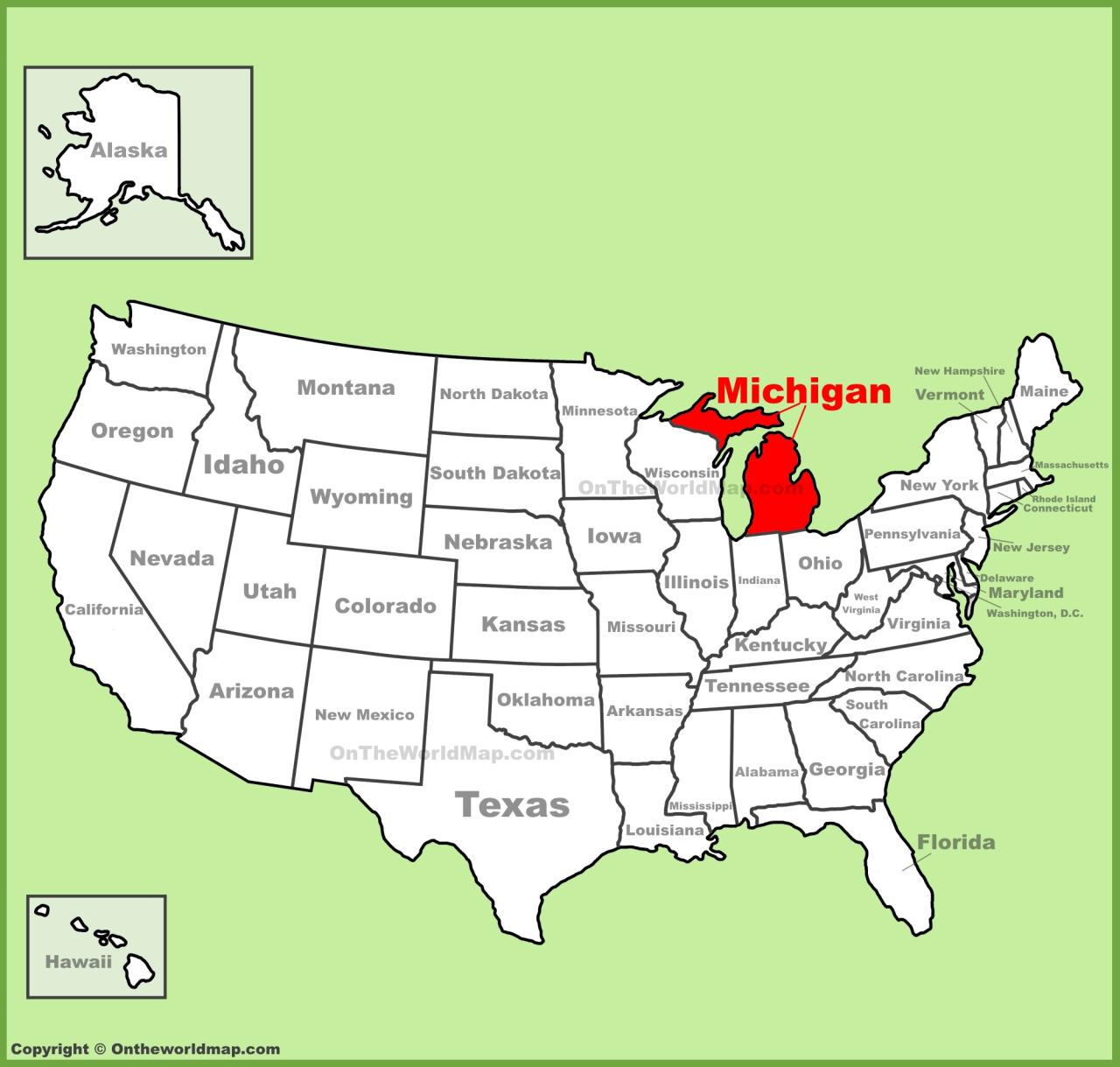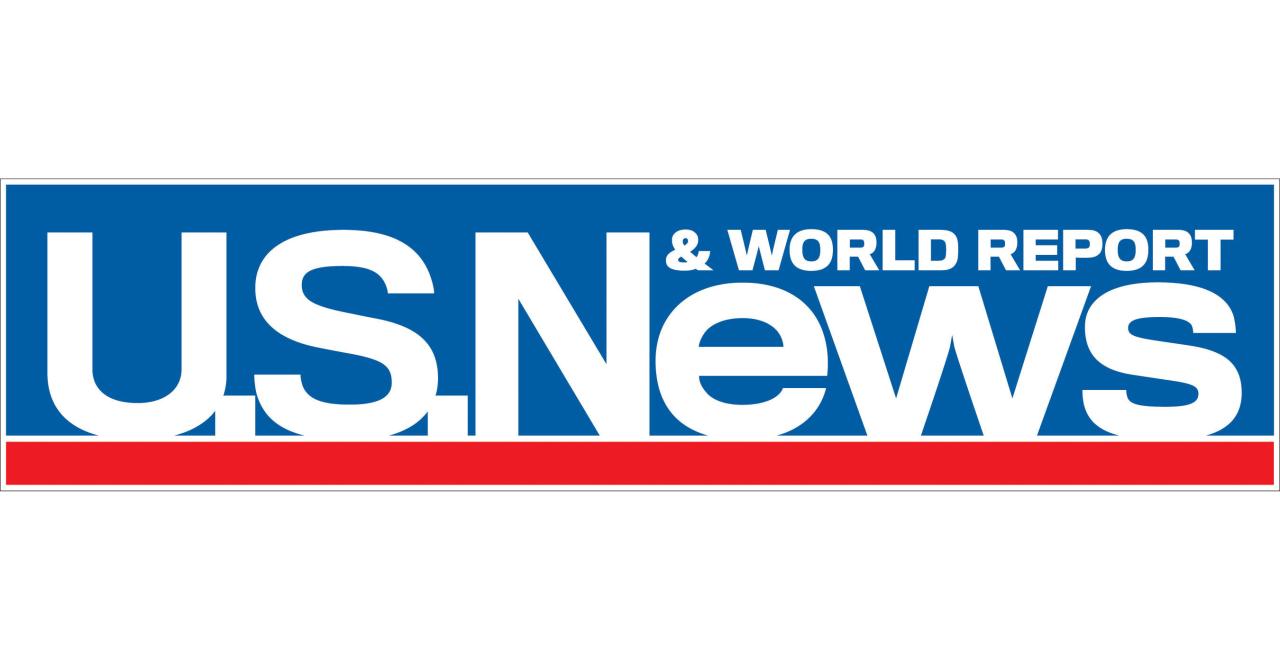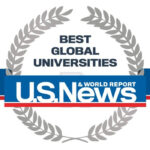University of michigan us news and world report – The University of Michigan consistently ranks among the top universities in the United States, as reflected in its impressive standing on the U.S. News & World Report Best National Universities list. This prestigious institution has garnered a reputation for academic excellence, robust research, and a vibrant campus culture. The university’s performance on the U.S. News & World Report rankings reflects its dedication to providing a world-class education and fostering innovation across diverse disciplines.
U.S. News & World Report’s methodology considers various factors, including academic reputation, graduation rates, faculty resources, and student selectivity. The University of Michigan excels in these areas, consistently receiving high scores in various categories. Its strong academic programs, particularly in engineering, medicine, and law, contribute significantly to its overall ranking.
University of Michigan’s Overall Ranking
The University of Michigan consistently ranks among the nation’s top universities, consistently earning a place within the top 20 institutions in the U.S. News & World Report Best National Universities list. This prestigious ranking reflects the university’s exceptional academic reputation, research prowess, and commitment to student success.
University of Michigan’s Position in the Latest U.S. News & World Report Ranking
The University of Michigan holds a prominent position in the latest U.S. News & World Report Best National Universities ranking, securing a spot among the top 20 institutions in the country. This ranking reflects the university’s excellence across a range of academic and research areas.
Methodology Used by U.S. News & World Report
U.S. News & World Report employs a comprehensive methodology to determine its Best National Universities rankings, taking into account a variety of factors. These factors include:
- Outcomes: This category assesses graduation and retention rates, which reflect the university’s ability to support students in completing their degrees. The university’s success in placing graduates in prestigious graduate programs and the overall success of its alumni also contribute to this factor.
- Faculty Resources: This factor evaluates the university’s commitment to its faculty, considering factors such as faculty salaries, class sizes, and the proportion of faculty with the highest degrees. This reflects the university’s investment in attracting and retaining top-tier academic talent.
- Student Excellence: This category examines the university’s selectivity in admissions, considering factors such as SAT/ACT scores and high school class rank. The university’s commitment to academic rigor and its ability to attract academically talented students contribute to this factor.
- Financial Resources: This factor assesses the university’s financial resources, including per-student spending on instruction, research, and student services. The university’s ability to provide adequate resources for its students and faculty is crucial for academic excellence.
- Alumni Giving: This category evaluates the level of alumni support for the university, which reflects the university’s reputation and the value alumni place on their education.
- Reputation: This factor considers the university’s reputation among academics and peers. This is determined through surveys of college presidents, provosts, and deans at other top universities.
The methodology employed by U.S. News & World Report provides a comprehensive evaluation of the university’s overall quality and performance. The university’s consistently high ranking in this prestigious list is a testament to its commitment to academic excellence, research innovation, and student success.
Academic Reputation and Strengths: University Of Michigan Us News And World Report
The University of Michigan boasts a renowned academic reputation, consistently ranking among the top universities in the nation. This prestigious standing stems from its exceptional faculty, cutting-edge research, and diverse range of academic programs.
Highly Regarded Academic Programs
The University of Michigan’s academic prowess is evident in its numerous highly ranked programs. According to U.S. News & World Report, the university excels in various disciplines, including:
- Engineering: The College of Engineering at the University of Michigan consistently ranks among the top engineering schools in the nation. Its programs in mechanical engineering, electrical engineering, and computer science are particularly renowned.
- Business: The Ross School of Business is a leading institution for business education, consistently ranked among the top business schools in the world. Its MBA program is highly sought after by employers, and its undergraduate business program is also highly regarded.
- Law: The University of Michigan Law School is one of the most prestigious law schools in the United States. Its graduates are highly sought after by top law firms and government agencies.
- Medicine: The University of Michigan Medical School is a world-renowned center for medical education and research. Its programs in medicine, nursing, and public health are highly respected.
Research Excellence
The University of Michigan is a leading research institution, consistently ranking among the top universities in the nation for research expenditures. Its faculty members are at the forefront of their respective fields, making groundbreaking discoveries and contributing to the advancement of knowledge.
Faculty Expertise
The University of Michigan faculty is comprised of world-renowned scholars, researchers, and educators. They are actively engaged in groundbreaking research, publishing in prestigious journals, and receiving prestigious awards.
Student Life and Campus Culture
The University of Michigan boasts a vibrant and diverse campus culture, offering a wide range of opportunities for students to engage in academics, extracurricular activities, and personal growth. The university’s commitment to creating an inclusive and welcoming environment for all students is evident in its initiatives and programs, fostering a strong sense of community.
Campus Environment
The University of Michigan’s sprawling campus is home to a diverse student body, creating a dynamic and stimulating environment. With its picturesque setting, numerous green spaces, and historic buildings, the campus provides a unique blend of tradition and modernity. The central campus, known as “The Diag,” serves as a hub for student gatherings, protests, and social events, reflecting the university’s commitment to free speech and intellectual discourse.
Diversity and Inclusion
The University of Michigan is renowned for its commitment to diversity and inclusion, actively promoting an environment where all students feel valued and respected. The university has implemented numerous initiatives to foster a more inclusive campus culture, including:
- The Office of Diversity, Equity, and Inclusion (ODEI) provides resources and support to students from underrepresented backgrounds, ensuring their academic and personal success.
- The university’s robust multicultural centers, such as the African American Cultural Center and the Asian Pacific American Studies Program, offer spaces for students to connect with their heritage and celebrate their identities.
- The university’s commitment to diversity extends to its faculty and staff, with initiatives aimed at increasing representation and creating a more inclusive workplace.
Student Organizations and Extracurricular Activities
The University of Michigan boasts a vast network of student organizations and extracurricular activities, providing students with opportunities to pursue their passions, develop new skills, and connect with like-minded individuals. From academic clubs and sports teams to social groups and service organizations, students have a plethora of options to explore.
- The university’s athletic programs, particularly football and basketball, are highly competitive and generate immense enthusiasm among students. The “Big House,” home to the Wolverines football team, is one of the largest stadiums in the world, creating a unique and electric atmosphere for game days.
- The university’s strong emphasis on community service is evident in the numerous student-led organizations dedicated to addressing social issues. These organizations provide opportunities for students to engage in volunteer work, advocate for social change, and make a positive impact on their communities.
- The university’s vibrant arts scene offers students opportunities to engage in creative expression, with numerous student-run theater groups, music ensembles, and art studios.
Admissions and Financial Aid
Gaining admission to the University of Michigan is highly competitive, and the financial aid landscape is multifaceted. Understanding the admissions process and financial aid options is crucial for prospective students.
Admissions Process
The University of Michigan’s admissions process is comprehensive, evaluating applicants holistically based on academic achievements, extracurricular involvement, and personal qualities.
- Application Requirements: Applicants must submit the Common Application or Coalition Application, along with official high school transcripts, standardized test scores (SAT or ACT), letters of recommendation, and a personal essay.
- Application Deadlines: The University of Michigan offers several application deadlines, including Early Action, Regular Decision, and Deferred Action. Early Action applicants receive a decision by mid-December, while Regular Decision applicants receive a decision by late March. Deferred Action applicants are given an additional month to complete their application.
- Admissions Statistics: The University of Michigan’s acceptance rate is highly selective, with an acceptance rate hovering around 20% in recent years. This signifies the high level of competition for admission.
Financial Aid Policies
The University of Michigan is committed to making a quality education accessible to students from diverse socioeconomic backgrounds. Financial aid packages are tailored to individual student needs and may include scholarships, grants, loans, and work-study opportunities.
- Need-Based Aid: The university considers a student’s financial need when awarding financial aid. This includes the Free Application for Federal Student Aid (FAFSA) and the CSS Profile, which provide detailed information about a family’s financial circumstances.
- Merit-Based Scholarships: The University of Michigan offers numerous merit-based scholarships to recognize outstanding academic achievements, leadership qualities, and other talents. These scholarships are awarded based on a student’s academic record, standardized test scores, and extracurricular activities.
- Federal and State Grants: Students may be eligible for federal and state grants, which are need-based and do not need to be repaid. These grants can significantly reduce the overall cost of attendance.
- Work-Study Programs: The University of Michigan offers work-study programs that allow students to earn income while gaining valuable work experience. These programs provide a flexible way for students to contribute to their education costs.
Affordability of Attending the University of Michigan, University of michigan us news and world report
The cost of attending the University of Michigan varies based on factors such as residency status, program of study, and living expenses. However, the university provides comprehensive financial aid resources to support students from all socioeconomic backgrounds.
- Cost of Attendance: The total cost of attendance at the University of Michigan includes tuition and fees, room and board, books and supplies, and personal expenses. In-state students generally pay lower tuition rates compared to out-of-state students.
- Financial Aid Packages: The university offers generous financial aid packages that can significantly reduce the overall cost of attendance for eligible students. These packages may include a combination of grants, scholarships, loans, and work-study opportunities.
- Net Price Calculator: The University of Michigan provides a Net Price Calculator on its website, which allows prospective students to estimate their potential financial aid package based on their individual circumstances.
Career Services and Alumni Network

The University of Michigan is renowned for its comprehensive career services and robust alumni network, which play a pivotal role in supporting students and graduates in their career journeys. The university’s commitment to career development is evident in its dedicated resources and programs designed to equip students with the skills and connections needed to thrive in the competitive job market.
Career Services Resources
The University of Michigan’s Career Center offers a wide range of resources and services to support students in their career exploration and job search. These resources are designed to help students identify their career interests, develop their skills, and connect with potential employers.
- Career Counseling: Students can meet with career counselors to discuss their career goals, explore different career paths, and develop strategies for their job search.
- Workshops and Events: The Career Center hosts numerous workshops and events throughout the year, covering topics such as resume writing, interviewing skills, networking, and career exploration. These workshops provide students with practical skills and insights to navigate the job market effectively.
- Job and Internship Search Platform: The Career Center maintains an online job and internship search platform, where students can find and apply for opportunities across various industries and sectors. This platform connects students with potential employers and provides them with access to a wide range of career opportunities.
- Employer Relations: The Career Center actively engages with employers to bring career opportunities to students. They organize career fairs, networking events, and employer presentations to connect students with potential employers and facilitate career exploration.
Alumni Network
The University of Michigan boasts a vast and influential alumni network, with over 600,000 alumni worldwide. This network serves as a valuable resource for students and graduates, providing opportunities for mentorship, networking, and career advancement.
- Mentorship Programs: The alumni network offers mentorship programs that connect students and graduates with experienced professionals in their field. These mentors provide guidance, support, and valuable insights into their chosen career paths.
- Networking Events: The university organizes numerous alumni networking events throughout the year, bringing together alumni from various industries and backgrounds. These events provide opportunities for students and graduates to connect with alumni, learn about their experiences, and explore potential career opportunities.
- Career Resources: The alumni network also provides access to career resources and job boards specifically for alumni, offering a platform for alumni to connect with potential employers and advance their careers.
Effectiveness of Career Services and Alumni Network
The University of Michigan’s career services and alumni network have a proven track record of preparing graduates for success in the job market. Graduates consistently report positive experiences with these resources, citing their effectiveness in helping them secure internships, land jobs, and advance their careers.
- High Placement Rates: The university boasts high placement rates for its graduates, with a significant percentage securing employment or pursuing further education within six months of graduation.
- Positive Feedback: Alumni consistently express positive feedback about the support they received from the Career Center and the alumni network, highlighting the value of these resources in their career journeys.
- Career Success: The University of Michigan’s alumni network includes numerous successful professionals who have achieved significant accomplishments in their respective fields. This network serves as a testament to the university’s commitment to preparing graduates for success in the competitive job market.
Notable Alumni and Achievements

The University of Michigan boasts a distinguished alumni network that has made significant contributions to various fields, including science, technology, business, arts, and politics. The university’s research achievements and innovations have had a profound impact on society, driving advancements in medicine, engineering, and social sciences. Moreover, Michigan has played a vital role in fostering entrepreneurship and technological advancements, nurturing numerous successful startups and groundbreaking inventions.
Prominent Alumni
The University of Michigan has produced a remarkable number of notable alumni who have achieved extraordinary success in their respective fields. These individuals have made significant contributions to society, shaping industries, advancing knowledge, and inspiring future generations.
- Tom Brady, a legendary American football quarterback, is a seven-time Super Bowl champion and widely regarded as one of the greatest quarterbacks of all time. He holds numerous NFL records and is a highly influential figure in the sport.
- Stephen Ross, a prominent real estate developer and philanthropist, founded The Related Companies, a leading real estate development firm. He is also the owner of the Miami Dolphins NFL team and has made significant contributions to various charitable causes.
- Jeff Immelt, a former CEO of General Electric, led the company through a period of significant growth and transformation. He is known for his strategic leadership and his commitment to innovation.
- Susan Wojcicki, the CEO of YouTube, played a key role in the development and growth of the world’s most popular video-sharing platform. She is a pioneer in the digital media industry and a leader in technology.
- Gerald Ford, the 38th President of the United States, served as a congressman and vice president before assuming the presidency. He is known for his role in healing the nation after the Watergate scandal and for his commitment to bipartisanship.
Research Achievements and Innovations
The University of Michigan is renowned for its world-class research, consistently ranking among the top universities in the world for research funding and publications. The university’s researchers have made groundbreaking discoveries and developed innovative technologies that have had a profound impact on society.
- The development of the first successful artificial heart, led by Dr. Robert Jarvik, revolutionized the treatment of heart failure and paved the way for future advancements in artificial organ transplantation.
- The discovery of the first effective treatment for HIV/AIDS, developed by Dr. David Ho, significantly improved the lives of millions of people living with the virus. This groundbreaking discovery marked a turning point in the fight against AIDS.
- The creation of the first successful DNA vaccine, developed by Dr. Ronald Crystal, opened up new possibilities for the development of vaccines for various diseases. This innovation has the potential to revolutionize the field of immunology.
Entrepreneurship and Technological Advancements
The University of Michigan has a strong culture of entrepreneurship, fostering innovation and supporting the development of new technologies. The university has established numerous programs and initiatives to encourage student entrepreneurship and to support the commercialization of research discoveries.
- The Michigan Ross School of Business offers a range of programs and resources to support student entrepreneurs, including the Zell Lurie Institute for Entrepreneurial Studies, which provides mentorship, funding, and networking opportunities.
- The Michigan Engineering Innovation Center is a hub for innovation and entrepreneurship, providing access to state-of-the-art facilities, equipment, and expert mentorship.
- The university’s technology transfer office, known as Tech Transfer, helps faculty and researchers commercialize their inventions and discoveries, bringing new technologies to market.
Comparison with Peer Institutions
The University of Michigan consistently ranks among the top universities in the U.S. News & World Report, but how does it compare to its peers? This section examines the university’s ranking and reputation in relation to other top-tier institutions, highlighting its strengths and weaknesses.
Ranking and Reputation Comparison
The University of Michigan’s overall ranking in the U.S. News & World Report is often in the top 10, placing it among the elite universities in the nation. However, it’s important to note that rankings are just one factor in evaluating a university. Other factors like research output, faculty quality, and student experience also play a significant role.
- Stanford University: Stanford consistently ranks among the top 5 universities in the U.S. News & World Report, known for its exceptional academic reputation, particularly in fields like engineering, computer science, and business. Stanford boasts a strong alumni network and a highly selective admissions process.
- Massachusetts Institute of Technology (MIT): MIT is renowned for its groundbreaking research and its emphasis on STEM fields. It ranks among the top 5 universities in the U.S. News & World Report, with a strong reputation for innovation and technological advancements.
- Harvard University: Harvard is consistently ranked as the top university in the U.S. News & World Report, known for its prestigious reputation, vast resources, and influential alumni network. It excels in various fields, including law, medicine, and the humanities.
- Princeton University: Princeton is known for its intimate academic environment and its strong focus on undergraduate education. It ranks among the top 5 universities in the U.S. News & World Report, with a highly selective admissions process and a strong reputation for academic rigor.
- Yale University: Yale is another prestigious university with a strong reputation for its liberal arts tradition and its influential alumni network. It consistently ranks among the top 10 universities in the U.S. News & World Report, known for its strengths in law, medicine, and the humanities.
Strengths and Weaknesses
The University of Michigan stands out in several areas compared to its peer institutions:
- Undergraduate Education: The University of Michigan is renowned for its strong undergraduate education, with a focus on providing a well-rounded academic experience. The university offers a wide range of majors and minors, and its faculty is highly regarded for their teaching and research.
- Research: The University of Michigan is a leading research institution, with a strong focus on innovation and discovery. The university has a wide range of research centers and institutes, and its faculty is highly regarded for their research contributions.
- Athletics: The University of Michigan has a rich athletic tradition, with a strong focus on student-athlete development. The university’s athletic programs are highly competitive, and its athletes have achieved numerous national championships.
However, the University of Michigan also faces some challenges:
- Selectivity: The University of Michigan’s admissions process is highly competitive, with a low acceptance rate. This can make it challenging for some students to gain admission.
- Cost: The University of Michigan is a relatively expensive university, which can be a barrier for some students.
- Location: The University of Michigan is located in Ann Arbor, Michigan, which can be a less desirable location for some students who prefer a more urban environment.
Factors Influencing Rankings
The U.S. News & World Report rankings are based on a variety of factors, including:
- Academic Reputation: This factor measures the perception of a university’s academic quality among other institutions.
- Faculty Resources: This factor measures the quality of a university’s faculty, including their education, experience, and research productivity.
- Student Selectivity: This factor measures the selectivity of a university’s admissions process, based on factors such as SAT/ACT scores and high school GPA.
- Financial Resources: This factor measures the financial resources available to a university, including endowment size and per-student spending.
- Graduation and Retention Rates: This factor measures the success of a university in graduating its students and retaining them for all four years.
- Alumni Giving: This factor measures the level of support that a university receives from its alumni.
The differences in rankings and reputation among these universities can be attributed to a variety of factors, including:
- Research Focus: Some universities are more focused on research than others, which can impact their rankings in areas like faculty resources and research output.
- Undergraduate Education: Some universities are more focused on undergraduate education than others, which can impact their rankings in areas like student selectivity and graduation rates.
- Location: Some universities are located in more desirable locations than others, which can impact their rankings in areas like student life and campus culture.
- Financial Resources: Some universities have more financial resources than others, which can impact their rankings in areas like faculty resources and student support.
- Alumni Network: Some universities have more influential alumni networks than others, which can impact their rankings in areas like academic reputation and job placement.
Impact of Rankings on University Operations
The U.S. News & World Report rankings, while not the sole determinant of a university’s worth, exert a significant influence on the University of Michigan’s academic and administrative decisions. The university’s response to its ranking reflects a complex interplay between the desire to maintain its prestigious standing and the pursuit of broader educational goals.
University’s Response to Rankings
The University of Michigan, known for its commitment to academic excellence, has demonstrated a proactive approach to maintaining its position in the U.S. News & World Report rankings. The university’s efforts to improve its standing have focused on various aspects, including:
- Investment in Faculty and Research: The university has consistently invested in attracting and retaining top faculty, recognizing that research productivity and faculty reputation are crucial factors in the rankings. This has led to the recruitment of renowned scholars and the establishment of cutting-edge research centers.
- Enhancement of Student Support Services: Recognizing the importance of student outcomes, the university has expanded and enhanced its student support services. This includes initiatives to improve student advising, career counseling, and mental health resources, all of which contribute to student success and are reflected in the rankings.
- Strategic Partnerships and Initiatives: The university has sought strategic partnerships and launched initiatives that enhance its global reach and impact. These collaborations with leading institutions and organizations contribute to the university’s reputation and visibility, which are factors considered in the rankings.
- Data Collection and Reporting: The university has implemented rigorous data collection and reporting processes to ensure accuracy and transparency in the information submitted to U.S. News & World Report. This meticulous approach aims to present a comprehensive and accurate picture of the university’s strengths and achievements.
Challenges and Opportunities for the University
The University of Michigan, like all higher education institutions, faces a complex set of challenges and opportunities in the 21st century. These stem from evolving student demographics, changing societal expectations, and a rapidly evolving technological landscape. While these challenges are significant, they also present opportunities for the university to enhance its academic programs, research capabilities, and student experience, positioning itself for continued success in the years to come.
Financial Sustainability and Affordability
The cost of higher education continues to rise, making it increasingly difficult for many students to afford a college degree. The University of Michigan is committed to providing access to a high-quality education for all students, regardless of their financial background. However, the university faces the challenge of balancing its commitment to affordability with the need to maintain a high standard of academic excellence and provide competitive salaries for its faculty and staff.
To address this challenge, the university is exploring a range of strategies, including increasing financial aid, offering more affordable online programs, and finding new ways to generate revenue.
Future Outlook and Implications
The University of Michigan’s consistently high ranking reflects its commitment to academic excellence and its ability to adapt to evolving trends in higher education. As the university looks toward the future, it faces both exciting opportunities and challenges that will shape its trajectory.
Long-Term Vision and Strategic Goals
The University of Michigan’s strategic plan, “Pathways to Excellence,” Artikels a long-term vision for the institution, emphasizing innovation, global engagement, and a commitment to societal impact. Key goals include:
- Strengthening Academic Excellence: The university aims to further enhance its academic programs, attract and retain top faculty, and foster interdisciplinary research collaborations.
- Expanding Global Reach: The university seeks to increase its international presence through partnerships, study abroad programs, and research collaborations with institutions worldwide.
- Addressing Societal Challenges: The university recognizes its responsibility to contribute to the solution of pressing global issues such as climate change, healthcare disparities, and economic inequality.
- Enhancing Student Success: The university strives to create a supportive and inclusive environment that enables all students to reach their full potential.
Impact of External Factors
The university’s future will be influenced by external factors such as:
- Technological Advancements: The rapid pace of technological innovation will continue to shape the way students learn, faculty teach, and research is conducted. The university is investing in areas such as artificial intelligence, data science, and online learning to prepare students for the workforce of the future.
- Demographic Shifts: The changing demographics of the student population, including increasing diversity and a growing number of adult learners, will require the university to adapt its programs and services to meet the needs of a wider range of students.
- Economic and Political Landscape: The global economic and political landscape will continue to influence higher education funding, access, and the value of a college degree. The university is actively engaging in policy discussions and advocating for policies that support higher education and ensure affordability for all students.
University’s Ability to Adapt and Thrive
The University of Michigan has a long history of adapting to change and innovation. Its commitment to research, its strong alumni network, and its commitment to diversity and inclusion position it well to navigate the challenges and opportunities of the future.
- Research and Innovation: The university’s robust research enterprise provides a platform for groundbreaking discoveries and technological advancements. The university is investing in emerging fields such as artificial intelligence, quantum computing, and nanotechnology, ensuring its position as a leader in scientific and technological innovation.
- Alumni Network: The University of Michigan boasts a vast and influential alumni network that provides valuable connections and resources for students and faculty. Alumni contribute to the university’s success through financial support, mentorship, and career opportunities.
- Diversity and Inclusion: The university is committed to creating a diverse and inclusive campus community that reflects the global society it serves. This commitment fosters a welcoming and enriching environment for all students and faculty, enhancing the university’s reputation and its ability to attract top talent.
The University of Michigan’s position on the U.S. News & World Report rankings underscores its commitment to providing a transformative educational experience. Its dedication to research, innovation, and student success continues to attract top talent from across the globe. The university’s impressive ranking reflects its dedication to academic excellence, its vibrant campus culture, and its enduring legacy of producing impactful graduates.
The University of Michigan consistently ranks highly in the US News & World Report, showcasing its academic excellence. For a comprehensive look at other top-tier universities, you can check out the university of maryland news website, which offers insightful news and rankings. Returning to the University of Michigan, its strong research programs and commitment to innovation contribute to its continued success in national rankings.
The University of Michigan consistently ranks highly in the US News & World Report, known for its strong academic programs and research. While Michigan is known for its strong liberal arts programs, the University of Washington, which can be found at university of washington us news , has a more diverse range of offerings, including engineering and computer science.
Both universities are highly regarded institutions that attract students from around the world, making them competitive contenders in the US News & World Report rankings.





